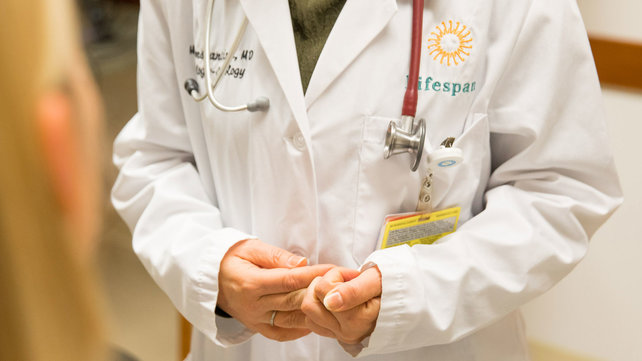Share Gratitude and Family Health History

That tradition of gathering around the table for a Thanksgiving feast is an annual family favorite. It’s also the perfect opportunity to talk about something that impacts us all – the family medical history.
Why is it important to know your family health history?
Your family’s health history holds a great deal of information about your own health. Your grandparents, parents, siblings, and you all share the same genes, similar environments, and often, the same lifestyles and habits, such as diet, whether or not you smoke, or preferred forms of exercise. Medical conditions such as heart disease, cancer, diabetes and high blood pressure often run in families.
That’s why in 2004 the U.S. Surgeon General at the time launched a national campaign called the Family Health History Initiative.
Knowing which diseases run in the family will give you invaluable medical history to share with your primary care provider. Then you and your doctor can make a plan to reduce your risk of certain diseases. Sometimes, testing for certain conditions can be done for people who are considered “high risk.”
Inherited heart conditions
Heart disease in the family is one of those conditions your doctor should know. “About 20 to 40 percent of common heart problems are inherited,” says Dr. Joseph Weiss, director of the Cardiovascular Genetics Clinic at The Miriam Hospital, and a cardiologist with the Brown University Health Cardiovascular Institute. “If we can identify an inherited cardiac disease in advance, keep it under surveillance, and intervene appropriately, a patient’s life can be dramatically improved and prolonged.”
While heart disease is often associated with lifestyle choices like diet, exercise, and smoking, inherited heart disease may increase your risk. Common heart conditions that share a hereditary factor include:
- high cholesterol
- cardiomyopathy
- heart arrhythmias
- hypertension
Inherited cancers
Like heart disease, certain cancers can also be inherited among family members.
“About five to 10 percent of cancer is considered genetic,” says Dr. Lauren Massingham, clinical geneticist with the Brown University Health Cancer Institute. “Certain patterns of cancer or family history may be suggestive of a hereditary cancer syndrome.”
For some individuals with a family history of cancer, additional screenings may be recommended. Genetic testing may also be a possibility. Some cancers with genetic factors include:
- certain types of breast cancer, which can increase a man's risk for prostate cancer
- colorectal cancer
- ovarian cancer
- melanoma
- kidney cancer
If someone in your family has been treated for cancer, be sure to let your health care provider know. The American Cancer Society has more information on family cancer syndromes.
Other inherited health conditions
Other conditions like asthma and diabetes, which can also lead to other complications, often run in families as well. The more you know about your family’s history, the better understanding your doctor will have of your risk factors, considerations for your care, and whether further testing is recommended.
What are examples of family medical history questions?
Some questions that will help you fill out your family health history are:
- Do you have any chronic diseases, such as heart disease, or chronic conditions, such as asthma or high blood pressure?
- Have you been treated for cancer, or had a stroke?
- What age were you when you were diagnosed or treated for those conditions (a specific age is best, but an approximate age, such as "early 60s" is okay)?
- Have any of our blood-related family members died from one of these diseases, and if so, at what age?
How do you organize your family health history?
Now that you have your family medical history, you'll want to write it down so you have it handy for any future medical appointments. Some options for organizing your family medical history are:
- a simple family tree, such as the downloadable form from the Rhode Island Department of Health
- a more in-depth workbook like the Families SHARE download from the National Human Genome Research Institute
- online at the My Family Health Portrait, available from the CDC
So, enjoy your Thanksgiving holiday, and also take the opportunity to ask questions about your family’s health history. Sharing this vital information with your doctor could mean celebrating even more holidays together!
About the Author:
Brown University Health Blog Team
The Brown University Health Blog Team is working to provide you with timely and pertinent information that will help keep you and your family happy and healthy.
Find a Doctor

The right provider is in our network
Search more than 1,200 providers in our network.



